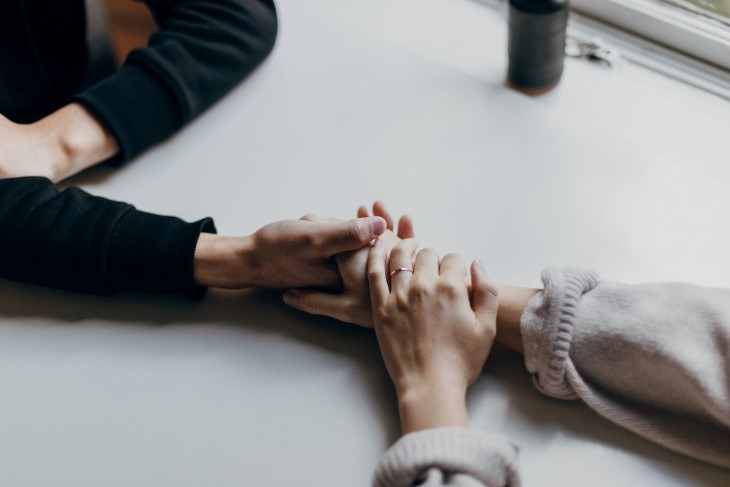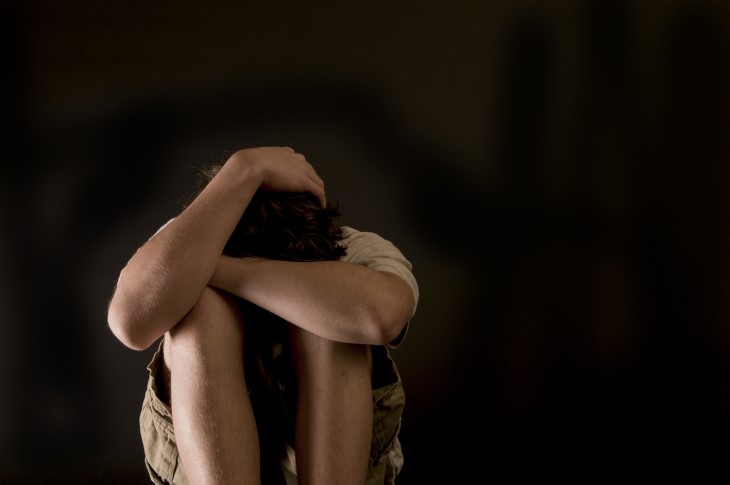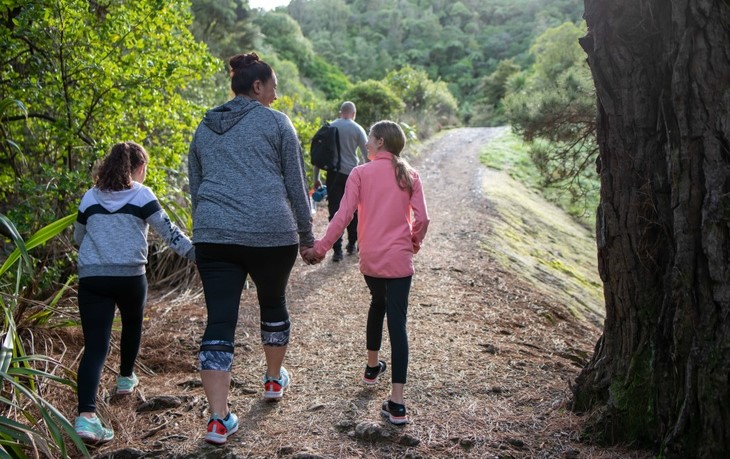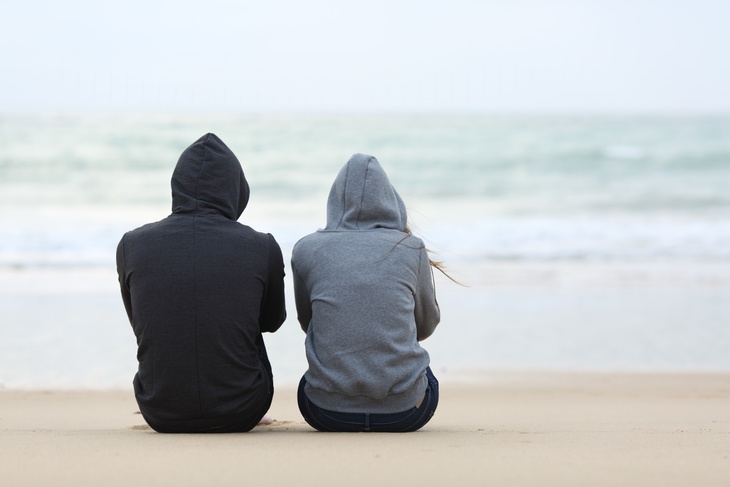Introducing Te Aorerekura: our strategy to eliminate family and sexual violence

We are proud to support Aotearoa's first national strategy aimed at eliminating family and sexual violence.
The Minister for the Prevention of Family Violence and Sexual Violence, Marama Davidson, launched a comprehensive 25-year plan today to eliminate family and sexual violence.
We are proud to support this strategy which aims to create fundamental, society-wide change in Aotearoa. Its vision is a nation where people can flourish, free from the threat of family violence and sexual violence.
Te Aorerekura: National Strategy to Eliminate Family Violence and Sexual Violence
What is Te Aorerekura?
Te Aorerekura is a roadmap which sets Aotearoa on an inter-generational journey toward wellbeing and a stronger, more peaceful nation.
Its guiding vision, or moemoeā, is that: “All people in Aotearoa New Zealand are thriving, their wellbeing is enhanced and sustained because they are safe and supported to live their lives free from family violence and sexual violence”.
Te Aorerekura is the result of discussions with thousands of people, including ongoing input from tangata whenua, leaders from our diverse communities, sector specialists and government agencies.
Te Tiriti o Waitangi/Treaty of Waitangi is woven throughout Te Aorerekura, and has tangata whenua, children, young people, those impacted by violence, and their communities at its core.
The strategy builds on all the good work we know is already happening across government and within our communities. But such a major shift in our attitude toward family violence and sexual violence requires a new way of working.
Te Aorerekura brings together a unified whole-of-government response and sets out an equal partnership with tangata whenua and communities. It recognises that this is a problem New Zealanders can only solve by working together.
The framework also helps keep governments and the public sector accountable for their actions and progress in achieving the vision of Te Aorerekura.
What are the principles of Te Aorerekura?
Te Aorerekura is based on a set of core beliefs and values. These are:
Equity and inclusion
Prioritising equity and inclusion in all spaces, ensuring equity of resourcing and outcomes; that all voices are heard and represented at all levels of decision-making; and that all people have options about the supports they receive.
Aroha
Acting with aroha, recognising that treating people with kindness and care enables healing and demonstrates what respectful relationships look like.
Tika and Pono
All actions are tika and pono, where people act with fairness, integrity, and are accountable for their actions.
Kotahitanga
People work together in an integrated way, reflecting kotahitanga to provide support to others, and receive support in return.
Kaitiakitanga
Kaitiakitanga is practised – all people understand their roles and responsibilities to ensure the safety and wellbeing of people and their families and whānau.

What role is ACC playing?
For ACC, this represents a bold challenge, but also a great opportunity for us to build on and expand the work we do in supporting people who experience the effects of sexual abuse and assault.
We will also be increasing our efforts to prevent family violence and sexual violence from happening in the first place.
We are already investing $44.9 million to establish a sexual violence primary prevention system over the next four years, including $11.715 million for kaupapa Māori approaches, but there is more mahi to do.
ACC is also leading or playing a supporting role in 21 of 40 projects laid out in the Action Plan, in partnership with other government agencies, health sector partners, iwi and communities.
The specific actions in Te Aorerekura that ACC will lead are:
- Investing in upskilling community primary prevention
- Adopting the Te Tiriti-centric Primary Prevention System Model which addresses underlying causes of sexual violence through education, workforce development and behaviour change
- Developing tools to support healthy, consensual relationships for young people
- Developing the Oranga Whakapapa programme, a co-designed approach for tamariki, rangatahi and whānau to learn about healthy and consensual relationships
- Developing community mobilisation infrastructure to lead sexual violence primary prevention
- Developing and delivering a sexual violence primary prevention campaign
- Strengthening community-led solutions to prevent child sexual abuse
- Designing local tangata whenua services for sexual violence healing and restoration
- Investing in monitoring and learning to build the evidence base for primary prevention.
Investing in primary prevention is a long-term strategy but is the best way to make meaningful and lasting improvements to the wellbeing of all New Zealanders.
We know that if we can address the deeper factors which increase the risk of violence, we can help prevent harm before it happens.
This not only reduces the impact and cost of harm, but over time will foster conditions for peaceful homes where children, families and whānau thrive.

We’re working to evolve and improve our sensitive claims services
We play a key role in supporting people dealing with the effects of sexual abuse and assault and is increasing our efforts to help prevent family violence and sexual violence.
Alongside the actions identified in the Action Plan, we want to ensure that our services for survivors of sexual violence continue to evolve and be responsive to what they need. This is important mahi that can only be achieved by working together under the framework of Te Aorerekura.
Over the next couple of years, we are going to be taking time to listen and fully understand the challenges and benefits of the current ISSC service and engage closely with survivors and providers and the wider sector.
We are kicking off this engagement on 16 December, by hosting an online Hui to provide an opportunity for our key stakeholders to come together to start the process of identifying the challenges we are collectively facing providing support to survivors of sexual violence through the Integrated Services for Sensitive Claims (ISSC).
At the event, we will have representatives from government agencies, professional associations, client advocates, and ISSC suppliers who will come together to raise the challenges and opportunities to strengthen the support we deliver to our clients.
This is the first critical step in a series of engagements being planned for 2022. After we collectively identify the challenge areas, we want to come back together to start the conversations about what we can collectively do to tackle the identified priority areas.
This will include a broader programme of work including:
- Designing Kaupapa Māori services to support clients with a sensitive claim
- Using data and insights to better understand where improvements can be made
- Working collectively with partners to address workforce capacity and capability issues
- Understanding the effectiveness of outcomes and service delivery
- Identifying digital and technology improvement opportunities
- Continuing to explore improvements within the current ISSC service
We’re excited to embark on this important journey with our government partners, iwi and our communities.
You can read more about the Joint Venture for Eliminating Family Violence and Sexual Violence below:
If you’ve experienced sexual abuse or assault, we have an online search tool to help find the right support for you:




